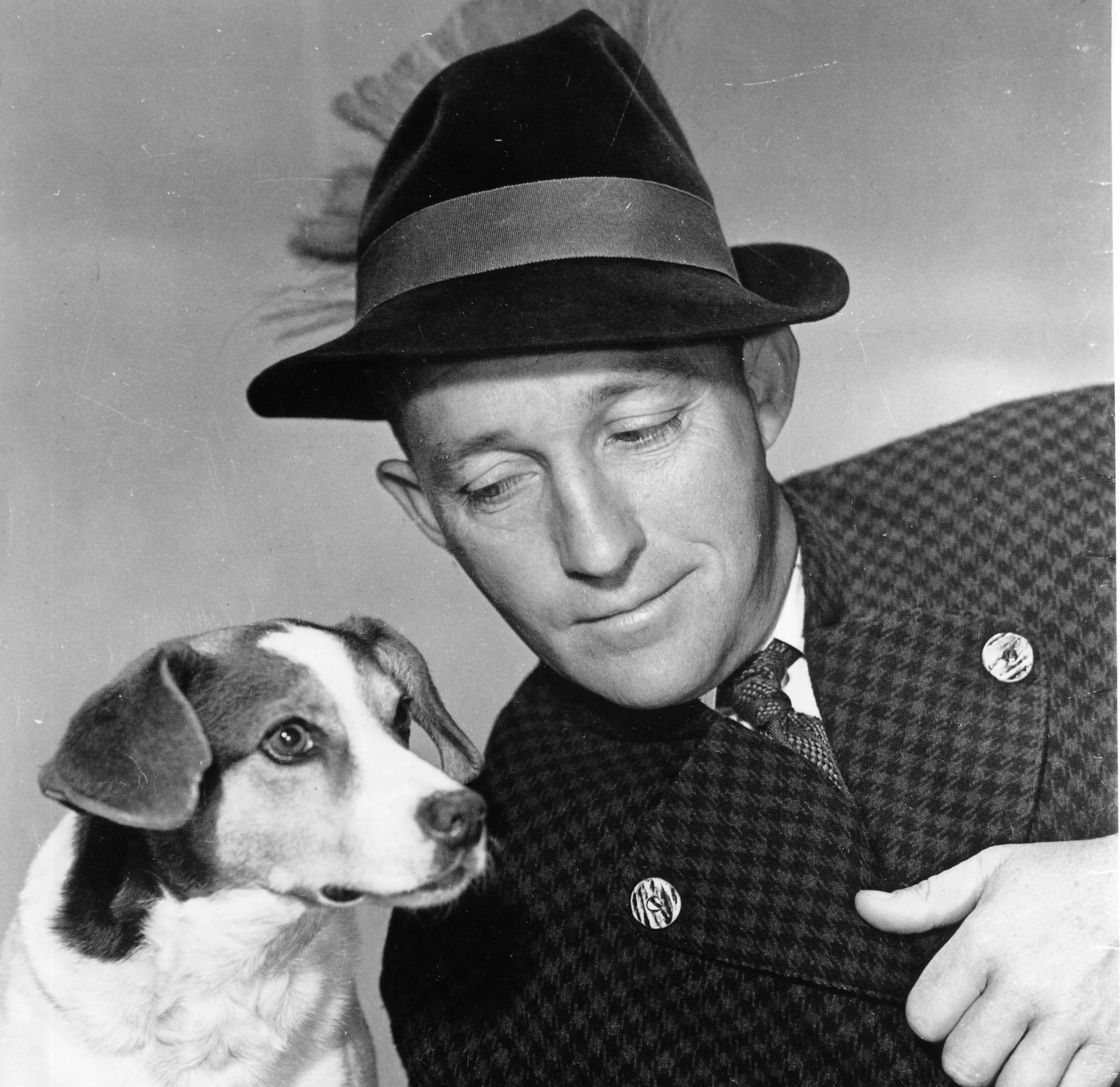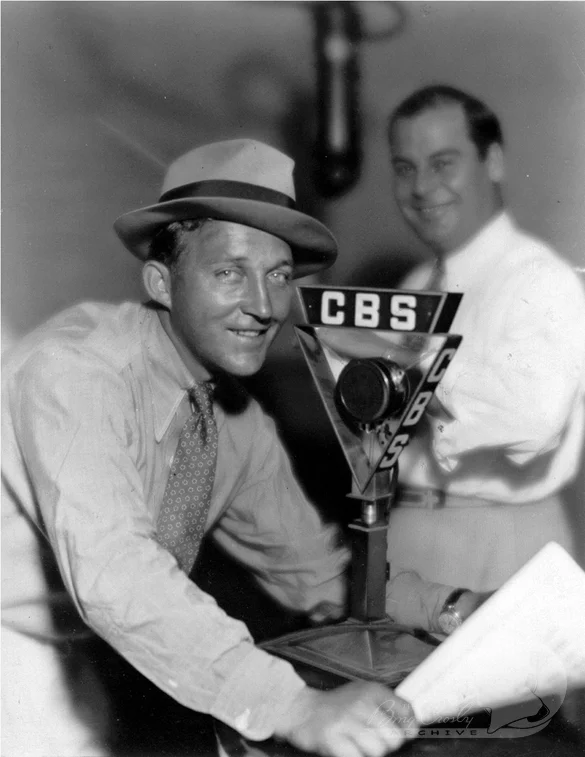The Radio Star
“The voice of Bing Crosby has been heard by more people than the voice of any other human being who ever lived.” — Decca Records, 1954

“That’s just a press agent’s puff… You know how press agents are; they’ll say anything.” — Bing Crosby, 1977
The uppermost quote, whether concocted by a press agent or not, must certainly be true. Bing Crosby’s voice literally saturated the 20th Century. This is a statistical verity that can hardly be denied. Nobody else even comes close in terms of longevity, frequency, popularity, or familiarity. Consider the endless string of song-drenched Hollywood movies that made him one of the top box-office draws in motion picture history. Then there are the thousands of phonograph recordings that have sold nearly a billion units on 78, 45 & 33 1/3 rpm and tape formats, as well as the CDs and downloads that continue to make these Crosby records available in every corner of the world. Television, too, played a huge role in delivering the voice of Bing Crosby to millions of people, first on a series of heavily anticipated “all-star spectacular” specials during the 1950s, throughout the 1960s and his six-year stint as the recurring host of “The Hollywood Palace” and countless guest shots, culminating in the annual Christmas specials during the 1970s, for which TV audiences perhaps best remember him.
But though Crosby is primarily lauded these days for the way in which he reigned as king of the box-office and jukeboxes of his day, there is no doubt that the primary factor in disseminating Bing Crosby’s voice to the masses during his peak years of legendary popularity was radio.

It wasn’t just the timing though, or the fact that Bing Crosby’s voice was a naturally pleasing instrument that carried beautifully over the airwaves. The fact is, Bing Crosby was an intuitive genius who instinctively combined his jazz-informed, highly original and improvisational conception of vocalizing with a deep understanding of the microphone’s sensitivity to nuance, subtlety and vocal shading, creating intimacy. His became the first completely “Radiophonic” voice of the era, one which was totally geared towards the advantages and requirements of electronic presentation and reproduction.
Glib, charming, confident, and altogether admirable, Bing Crosby (or his handlers) practically invented and went on to perfect the use of broadcasting as part of the new cycle of pop music promotion. Crosby’s latest songs, heard either in his films or purchased by legions of record fans, were highly anticipated as part of his broadcasts, which in turn sent countless additional listeners right back to the theaters and record emporiums, etc., in a can’t-miss chain reaction model of star-powered commerce. The “American Idol” franchise has nothing on Bing Crosby.
Bing’s work on radio began during his years as a more-or-less anonymous band singer, and carried on through decades of Bing-helmed series and additional specials and guest appearances. His longevity in the medium was singular: He started out during the industry’s formative years, and remained a regular radio performer – creating original programming specifically for radio listeners – into the early 1960s, long after his contemporaries had moved into TV, quit performing entirely, or simply passed on.